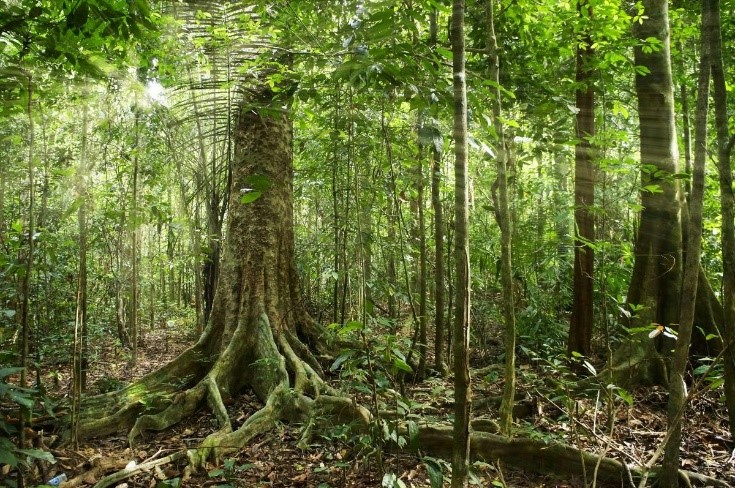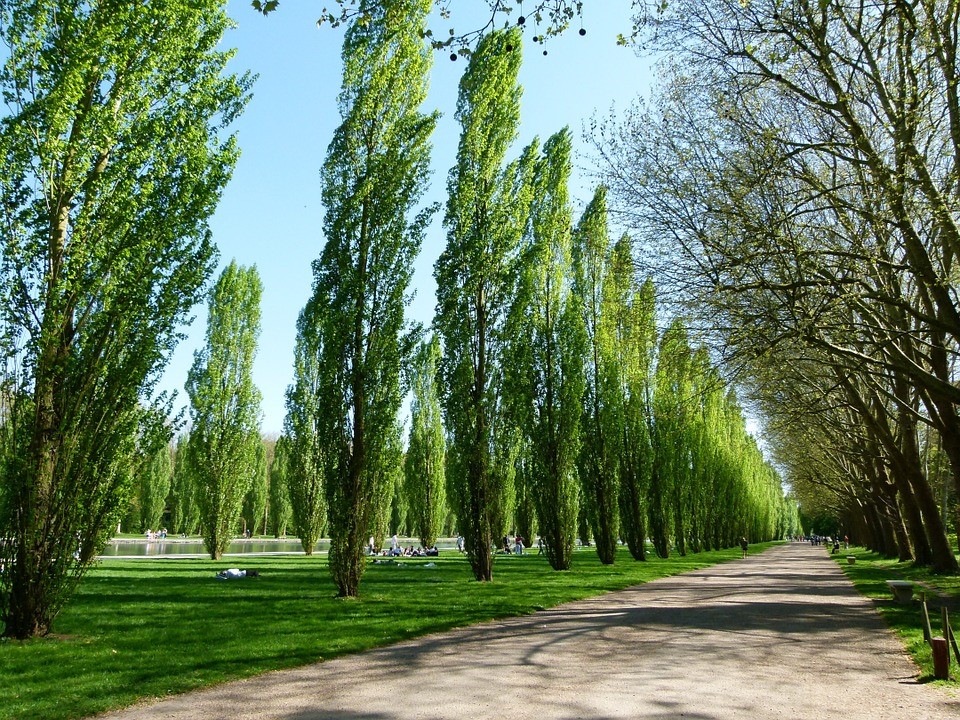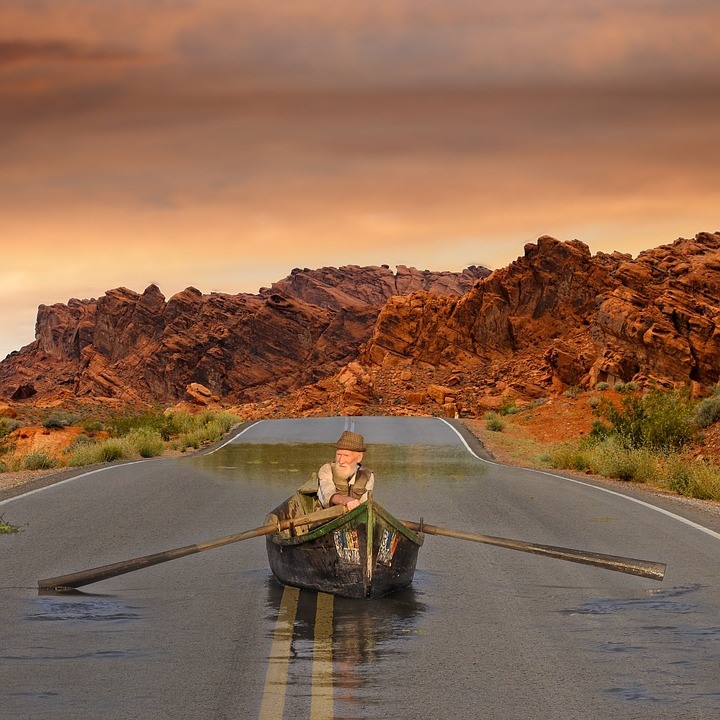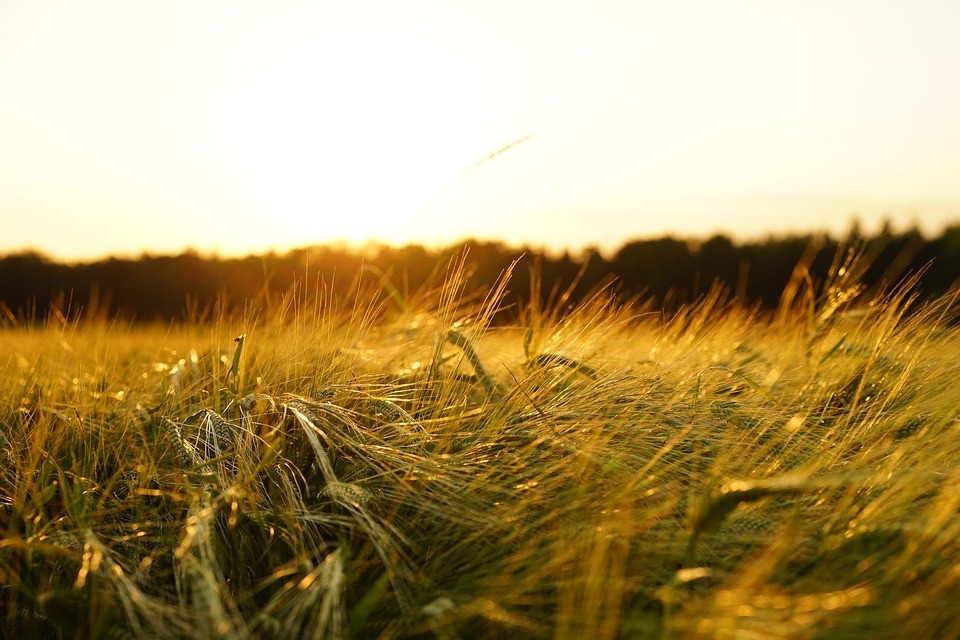Saving rainforest through used cell-phone by Valentina Bagliani, LSP Assisi/Italy
In a Ted talk held by engineer Topher White he shares a simple way to stop the deforestation using old cell phones.
In 2011, during his visit to the rainforests of Borneo, Topher noticed a constant cacophony of noises. The sounds of the rainforest included: the chirps of birds, the buzz of cicadas, the banter of gibbons, but the most important noise that was coming out of the forest was one that nobody had noticed: the sound of a chainsaw, from illegal loggers.
Struck by the fact that it is unacceptable that in this modern time, just a few hundred metres away from a ranger station in a sanctuary, nobody could hear it, and as an engineer he wanted to find a solution. But after all, it had to be simple and measurable. He had to use what was already present in the forest. Incredibly there was connectivity out in the forest. So he started to think of a solution that includes a device able to record the sounds of the chainsaws and send an alarm to a guard who can arrive in real time. But what is this device? Cell phones are thrown away by the hundreds of millions every year in the USA alone, and they have all the features to be used for the system. They must be placed in special boxes and charged through special solar panels built with recycled products. These devices would be well hidden by the tree branches and they would be able to hear chainsaw noises up to kilometres in the distance.
Months after applying this invention in the forests of Indonesia, Topher could see that these devices are really working. In fact they picked up illegal chainsaw noises. They were able to give a real-time alert and rangers could go to the place where the loggers were deforesting. Once there, their presence was enough to deter the loggers from their activity and to repeat it.
People from around the world started sending them emails, phone calls, but above all, their old cell phones.
Deforestation is one of the topics that is shared by both developed and non-developed countries. It accounts for more greenhouse gas than all of the world's planes, trains, cars, trucks and ships combined and it’s the second highest contributor to climate change. The destruction of forests is proceeding at an alarming rate; over the last one hundred years, more than a third of the forests have been destroyed. We can stop this nightmare also by using Topher White’s the invention, and so it’s really important to recycle and eliminate excessive or unnecessary consumption… In fact as Topher White says “there's always going to be enough there, that you can build similar solutions that can be very effective in new contexts”.

Posted 07.06.2017 12:54
Leonella Pippi 07.06.2017 16:31
A literary perspective
‘After-comers cannot guess the beauty been’
Nothing new under the sun by Leonella Pippi LSP, Assisi/Italy
Do we really believe that it is only our age which is responsible for the extensive destruction of the environment and the depletion of natural resources?
1879 – A Victorian poet laments the destruction of a poplar wood at Binsey, a village he had known in the years spent in Oxford:
My aspens dear, whose airy caged quelled,
Quelled or quenched in leaves the leaping sun,
All felled, felled, are all felled;
Of a fresh and following folded rank
Not spared, not one
That dandled a sandalled
Shadow that swam or sank on meadow and river and wind wandering
weed-winding bank.
O if we but knew what we do
When we delve or hew –
Hack and rack the growing green!
Since country is so tender
To touch, her being so slender,
that, like this sleek and seeing ball
but a prick will make no eye at all,
Where we, even where we mean
To mend her we end her,
When we hew or delve:
After-comers cannot guess the beauty been.

‘After-comers cannot guess the beauty been’ Why can’ t they? Because warlike industrialization has “defeated “ the beauty of nature sacrificing it to the logic of progress, productivity and profit. Or perhaps because rational and improved farming systems have altered the landascape to the benefit of a widening market.
Gerard Manley Hopkins was a religious poet and his writings reveal his deep attachment to an idea of nature that hides and reveals moral truths. We may share this idea or not. We must be aware though, that it is not beauty in itself that we may lose, rather it is an expected quality of life that we have been putting in danger since the early times of industrialization.
We have not discovered anything new, if we consider that William Blake had already warned us against the dangers of a dehumanizing society in Songs of Experience (1789), as well as Charles Dickens in Hard Times (1854) and Elizabeth Gaskell in North and South (1855).
2017 – We are still discussing the same issue. Needless to say the social background has changed and progress cannot be stopped, but progress matched with awareness, creativity and scientific development can give us a chance. Shall we grab it?
Another planet to go to? Let's save ours first! by Arianna Scarponi, LSP Assisi/Italy
Today's society is increasingly immersed in daily commitments, in work, and attracted to those futile problems that often distract it from more important and much more urgent issues. Among these, we find a phenomenon that, nowadays, is a real threat to humanity: Climate change.
Although a part of the world's population is still sceptical about its causes, we can say with certainty that this phenomenon is a consequence of human anthropic activities, which have dramatically increased greenhouse gas emissions (CO2) in the atmosphere. However, whilst the governments of the different nations of the world establish prevention measures and objectives, the world of industry and local authorities seems to be unwilling to reduce emissions, remaining impassive in front of the causes and the dramatic outcomes of climate change. But there is a person who intensely fights against climate change, building worldwide awareness of the potentially devastating impacts of this event.
He is Anote Tong, the Fourth President of the Republic of Kiribati, who in October 2015 held an interesting TED talk, mainly focused on the effects of climate change in his native country, Kiribati. The latter is an Island nation of the Oceanic continent comprised of three groups of islands: The Gilbert Group on the west, the Phoenix Islands in the middle, and the Line Islands in the east. Tong has often described Kiribati as a “frontline country”, since it has been among the first to experience dramatic climate change. In this regard, he claims the problem of rising sea levels, caused by the melting of glaciers, could have catastrophic impacts on the country that, being only two metres above sea level, risks to be completely submerged by water. This really scares the population, which, to survive, is almost forced to move to neighbouring countries.
A decision not easy to make, Tong explains, as leaving your own country and settling in a new home requires lots of adjustments, a new culture and new traditions. It is for this reason that the President of Kiribati wants to limit as much as possible the issue of mass migration, also seeking in vain the support of other countries to promote preventive measures, such as the construction of floating islands or the fortification of the island to face the storms that constantly afflict the country. In addition, Tong states that the industrialised countries, the main producers of greenhouse gases, are the only ones responsible for the disappearance of Kiribati’s population. They are used to closing their eyes to the fact that it is actually a global case, which affects not only a nation but concerns all the others, marking negatively the future of the population, especially that of children. But we can stop the development of climate change only through a strong cooperation between all the International States, since it is an issue that must be solved with the union and the force of the entire world population. During his interview, Tong said:“I think what many people do not understand is, they think climate change is something that is happening in the future. Well, we’re at the very bottom end of the spectrum.
It’s already with us.” So, this is not at all a problem that will happen in decades, it is happening today and we can see its effects in our daily lives. Its gravity rises day by day and if we don’t act right now, we have to look for another planet in the universe where we can continue to live!

from pixabay.com
Posted 07.06.2017 16:33
The damages of agriculture and livestock by Hermes Hoxholli, LSP Assisi/Italy
Yesterday I saw the Ted conference of Jonathan Foley about the crisis in global land use. He started his conference by showing what our planet looks like from outer space at nighttime through a picture which makes us understand how human presence in the world is dominant. Starting from this point he explained the human influence on the environment in the course of time with other pictures. The thing that astonished me most was that agriculture damages the environment more than anything else. It is the leading cause of climate change on our planet today, 30% to be exact. That’s more than emissions from all electricity and industry, more than all the automobiles, planes and trains. Even though agriculture is not a bad thing but a good one, because it is an absolute necessity, what leads to this pollution is the means used by people to increase crop yield. The flows of nitrogen and phosphorus around the world have been doubled simply by using fertilizers, causing huge problems of water quantity from rivers, lakes, and even oceans. People don´t know how much water is used to grow the food we eat. We need food for 7 billion people on this Earth but we have to produce it in a way that won´t kill the planet. We are running out of land, water and energy to sustain what we have now. It is very difficult to find a solution and we have to collaborate all together. In fact Foley said, “This is going to be one of the hardest things we have ever done in human history, and we absolutely have to get it right, and we have to get it right on our first and only try”.
 Posted 09.06.2017 19:00
Posted 09.06.2017 19:00
Monika Jakubek – 22.06.2017 00:31
Being a vegeterian is really better for the environment. Do you have doubts about that? I will resolve those doubts!
People’s appetite for meat and dairy – billions of pounds a year from billions of animals – have a huge impact on the environment and climate. Producing meat and dairy requires large amounts of pesticides, chemical fertilizers, fuel, feed and water. It also generates greenhouse gases and large amounts of toxic manure and wastewater that pollute groundwater, rivers, streams and, ultimately, the ocean.
Focusing on facts - Americans consume 60 per cent more meat than Europeans and the global appetite for meat is exploding. From 1971 to 2010, worldwide production of meat tripled to around 600 billion pounds while the global population grew by just 81 percent. At this rate, the production will double by 2050 to approximately 1.2 trillion pounds of meat per year, requiring more water, land, fuel, pesticides and fertilizers and causing significant damage to the planet. It doesn’t have to be this way. You can do something about it. By eating and wasting less meat (especially red and processed meat) and cheese, you are able to reduce the climate and environmental impact of food production.
We shouldn't forget about land degradation. Cattle are a well-known cause for soil erosion through trampling of the ground and overgrazing. Much of the world's crops are used to feed animals. With 30 percent of the earth's land devoted to raising livestock, a major cutback is needed to keep up with the growing population. Meat consumption is steadily rising in countries such as China that once followed more vegetable-based diets. This is because as countries are developing incomes are increasing so the demand for animal products are seen as a luxury many can now afford. The demand for animal products is quickly increasing: "74 percent for meat, 58 percent for dairy products and 500 percent for eggs". This growing demand is unsustainable.
Next time before you eat meat, just think for a while. Is it really worth it?